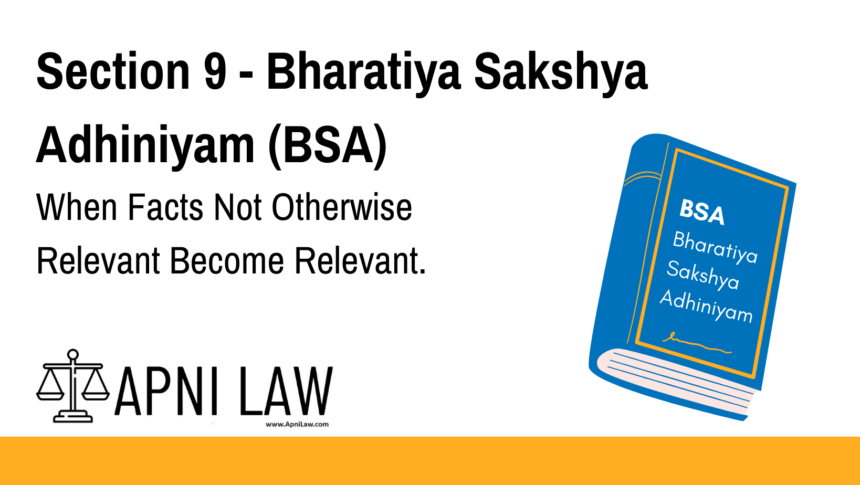Code
Facts not otherwise relevant are relevant—
(1) if they are inconsistent with any fact in issue or relevant fact;
(2) if by themselves or in connection with other facts they make the existence or
non-existence of any fact in issue or relevant fact highly probable or improbable.
Illustrations.
(a) The question is, whether A committed a crime at Chennai on a certain day.
The fact that, on that day, A was at Ladakh is relevant. The fact that, near the time
when the crime was committed, A was at a distance from the place where it was
committed, which would render it highly improbable, though not impossible, that he
committed it, is relevant.
(b) The question is, whether A committed a crime. The circumstances are such
that the crime must have been committed either by A, B, C or D. Every fact which
shows that the crime could have been committed by no one else, and that it was not
committed by either B, C or D, is relevant.
Explanation
Section 9 allows the inclusion of facts that may not appear relevant at first glance but become significant when:
-
They contradict (are inconsistent with) a fact in issue or a relevant fact, or
-
They significantly affect the likelihood (probability or improbability) of a fact in issue or relevant fact.
This section is vital for establishing alibis or eliminating alternative possibilities in both civil and criminal cases.
Illustrations
(a) The question is whether A committed a crime in Chennai on a certain day.
→ The fact that A was in Ladakh on that day is relevant, as it suggests he couldn’t have been in Chennai.
Even if A wasn’t in Ladakh but was far from Chennai at the time, making it highly improbable for him to commit the crime, that fact is also relevant.
(b) The question is whether A committed a crime, and the possibilities are narrowed to A, B, C, or D.
→ Every fact showing that B, C, and D couldn’t have committed the crime, and that no one else could have done it, makes it more probable that A did it — thus, such facts are relevant.
Key Concepts
🔹 “Otherwise not relevant” facts become relevant when:
— they challenge the narrative (contradict an established or claimed fact), or
— they point strongly toward or away from someone’s involvement or liability.








